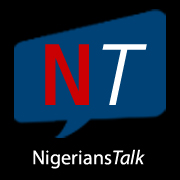 The elections have come and gone. A long month of campaigns, political engineering, analysis, postulation, tragedies and seeming successes has passed. Today, Africa’s most populated country is closing on the verge of transition from one democratically ‘elected’ government to another. Were the hurdles clearly scaled? There are reasonable doubts. Describing the process by the popular lexicon, we can conclude somewhat that the country obviously ‘wobbled and fumbled’ to this point. Nonetheless, it is a marked departure from the past and this effort should be lauded.
The elections have come and gone. A long month of campaigns, political engineering, analysis, postulation, tragedies and seeming successes has passed. Today, Africa’s most populated country is closing on the verge of transition from one democratically ‘elected’ government to another. Were the hurdles clearly scaled? There are reasonable doubts. Describing the process by the popular lexicon, we can conclude somewhat that the country obviously ‘wobbled and fumbled’ to this point. Nonetheless, it is a marked departure from the past and this effort should be lauded.
As is typical with high profile board meetings, walking through an agenda, the  stakeholders brainstorm at lengthy sessions, conclude on consensus items, pen down issues and areas of concern, and then finalize with two words – Next Steps! Consequent to the agreements made, specific action items are identified for immediate implementation and responsibilities are assigned. Dr Goodluck Jonathan has been declared winner of the presidential election, the South Western states save one have been re-captured by the Action Congress of Nigeria, election results are being queried by some parties, INEC struggles to resolve the inconclusive election in Imo State, while all eyes seem set on the May 29 self handover date – Next Steps?
stakeholders brainstorm at lengthy sessions, conclude on consensus items, pen down issues and areas of concern, and then finalize with two words – Next Steps! Consequent to the agreements made, specific action items are identified for immediate implementation and responsibilities are assigned. Dr Goodluck Jonathan has been declared winner of the presidential election, the South Western states save one have been re-captured by the Action Congress of Nigeria, election results are being queried by some parties, INEC struggles to resolve the inconclusive election in Imo State, while all eyes seem set on the May 29 self handover date – Next Steps?
Dr Jonathan must now get to the drawing board. This is not the time to appease political supporters or campaign loyalists. Neither is this the moment for a regurgitation of a 5, 7 or 9 point agenda. Seeing that the votes he amassed, where valid, represent the will of the people, perhaps we may assume, albeit questionably, that he owes no one or that he is no longer anybody’s boy? Whichever is the case, this is his moment to wield the force of character and demonstrate the psyche of progress. He must call the bluff of all potential performance saboteurs and detractors.
 He will do the country great good by adopting the model of governance already implemented in Lagos state. Fighting corruption may not be a strong point, and his campaign did not deny that. The Lagos state model is not belaboured with anti-graft operations, but is rather focused on the core of service delivery. Dr Jonathan should employ the same model. He must envision the Nigerian state as a business with its citizens being the customers, who frantically beckon for service delivery, while desiring an end to corruption. They maintain a higher preference to see government expenditure on power generation and supply than endless litigations against offenders.
He will do the country great good by adopting the model of governance already implemented in Lagos state. Fighting corruption may not be a strong point, and his campaign did not deny that. The Lagos state model is not belaboured with anti-graft operations, but is rather focused on the core of service delivery. Dr Jonathan should employ the same model. He must envision the Nigerian state as a business with its citizens being the customers, who frantically beckon for service delivery, while desiring an end to corruption. They maintain a higher preference to see government expenditure on power generation and supply than endless litigations against offenders.
If the customer truly is king, then Dr Jonathan must meet their preferred demand. Electricity supply is a core customer requirement. Education, health, security, roads and infrastructure development are ingrained in the customer’s desires. If their needs are not met within his government’s lifecycle (a mere 4 years), the availability of a substitute product with low switching cost will make a change in customer choice inevitable.
His next steps then are clear: Meet the demands of Nigerians! Assemble a cabinet of realistic and innovative technocrats who can deliver change to individual parastatals. Set quick win targets and assign timelines. Employ the strategy of communication and involvement. A monthly accountability report to the citizenry through a live media chat, with an open avenue for people to express their questions and concerns is not an option, it must be done. Nigerians must know what is going on, how funds are accounted for, what projects are being implemented, what the issues and resolution plans are. Prof Jega has evidenced this already. His numerous media sessions successfully communicated INEC’s situation to viewers and by large endeared many more to his credibility. That being said, talk still is cheap. Dr Jonathan must walk the talk.
In the process of service delivery, with a medium term focus, stricter policies for adherence to the rule of law should be introduced. As the leader of the nation, Dr Jonathan and his party, PDP, should embrace the policies of transparency and rule of law by allowing INEC to turn the spotlight on hi m. He should demonstrate to INEC that in adherence to section 91 (2) of the 2010 Electoral Act, he did not incur more than one billion naira on his presidential campaign, neither did any individual or entity donate more than one million naira to his campaign fund according to section 91 (9). Where the Executive clearly shows adherence to the law, it becomes a strong case for promulgating a national anti-graft campaign.
m. He should demonstrate to INEC that in adherence to section 91 (2) of the 2010 Electoral Act, he did not incur more than one billion naira on his presidential campaign, neither did any individual or entity donate more than one million naira to his campaign fund according to section 91 (9). Where the Executive clearly shows adherence to the law, it becomes a strong case for promulgating a national anti-graft campaign.
Security must become the watchword of his administration. There must be an end to the periodic breakout of mindless arson and carnage. Foresight and speed must be seen to be the underlying operational dimensions of security. Forces must be deployed early to areas where tension is seen to accrue. The lives of Nigerian youths, serving their fatherland, were wasted in the recent violence that followed the presidential elections because security forces delayed in responding and as such the victims were not protected from the raging mob. In determining his next steps, Dr Jonathan must revalue the worth of life for Nigerians and doggedly resolve to reverse the trend.
Whatever the next steps may be, in addition to the aforementioned, they should be communicated to the media in the weeks to come. They must be unambiguous, succinct and specific as they will become some of the standards by which his performance will be measured. The next four years will to a large extent provide an answer to Sonny Okosun’s age old question – Which way Nigeria? The first answer will be embedded in Dr Jonathan’s response to the thought of the moment – What Next?


Nice strategy and I keep hoping he distances himself from his party loyalists with mundane motives. To get the service model we all cherish in our utilities n resources, it’s a battle against a rich few who capitalize on our inefficiences to build an import cartel..to me that where the GEJ task to liberate Nigeria lies..I hope he finds d courage fast or we teLl his history on dusty potraits of govt halls.
LikeLike
Posted by Oluseun | May 1, 2011, 10:05 pmFor the attention of Mr. President G.E.Jonathan. The solution to the perpetual northern crisis can be found in three words… rebuild, Rebuild, REBUILD. Rebuild all Mosques destroyed in the riots, rebuild all churches destroyed, rebuild all homes. We can only do so much as mere men. Life cannot be restored no amount of financial compensation will close the wounds of our lost loved ones. But property can be restored. Not so much as to serve as compensation but to send a clear message to the dissidents that their work of destruction will not last. The people also need to know that they have a government that cares. Nigeria must remain one. No peoples will be driven out of any place they have chosen to call home. Terrorism must not be allowed to take root in our communities.
LikeLike
Posted by Bobby Adejo | May 2, 2011, 2:18 am